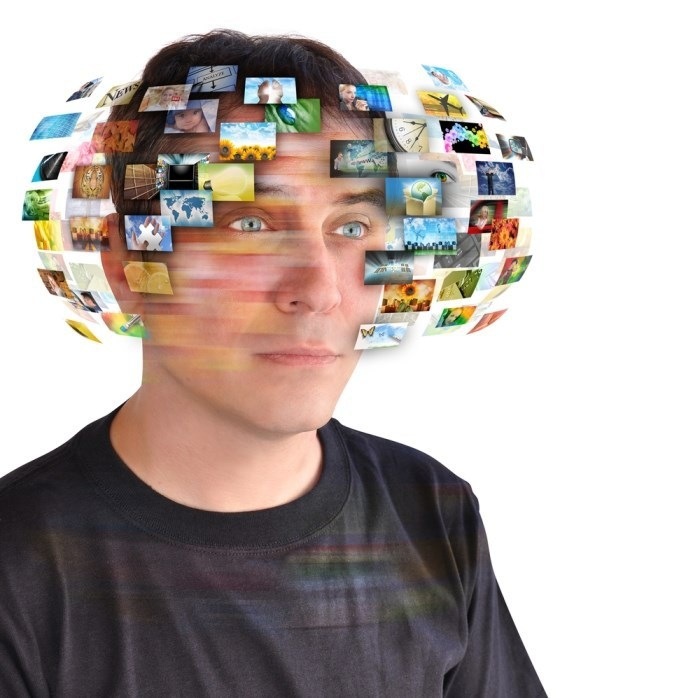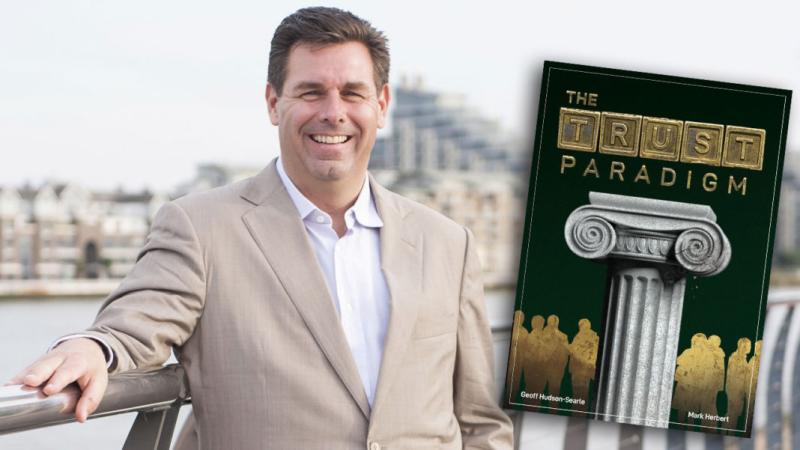Are we too distracted in this digital world for our real relationships?

One Sunday afternoon early this year, I was editing my new book, “Meaningful Conversations“, and found myself reading the same paragraph over and over, a half dozen times before concluding that it was hopeless to continue. I simply could not marshal the necessary focus.
Instead of reading and absorbing the written words, I was distracted by the alerts of my device on apps, email and twitter.
“The net is designed to be an interruption system, a machine geared to dividing attention,” Nicholas Carr explains in his book “The Shallows: What the Internet Is Doing to Our Brains.” “We willingly accept the loss of concentration and focus, the division of our attention and the fragmentation of our thoughts, in return for the wealth of compelling or at least diverting information we receive.”
Distractions turn on different part of our brains and do so more quickly than the daily grind of paying attention, neuroscientists have discovered.
Separate regions are responsible for the different ways our brain focuses on the world around us, according to the study by MIT researchers, and our brain waves even pulsate at different frequencies depending on the type of outside stimulus.
“Neural activity goes up and down in a regular periodic way, with everything vibrating together,” said study co-leader and neuroscientist Earl K. Miller. “It is faster for automatic stimulus and slower for things we choose to pay attention to.”
Addiction is the relentless pull to a substance or an activity that becomes so compulsive it ultimately interferes with everyday life. By that definition, nearly everyone I know is addicted in some measure to the Internet. It has arguably replaced work itself as our most socially sanctioned addiction.
According to one recent survey, the average white-collar worker spends about six hours a day on email. That doesn’t count time online spent shopping, searching or keeping up with social media.
The brain’s craving for novelty, constant stimulation and immediate gratification creates something called a “compulsion loop.” Like lab rats and drug addicts, we need more and more to get the same effect.
Endless access to new information also easily overloads our working memory. When we reach cognitive overload, our ability to transfer learning to long-term memory significantly deteriorates. It’s as if our brain has become a full cup of water and anything more poured into it starts to spill out.
Are all the modern devices and digital conveniences we have at our disposal — from the web and social media to smartphones and tablets — making us more distracted and less able to concentrate? And is this harming our ability to think and be creative, and therefore by extension harming society as a whole? It’s a big question, the question is can we face the reality of the answer or are we afraid of missing something?
Is multi-tasking just a myth?

Joe Kraus of Google Ventures says he has an “unhealthy relationship” with his phone and is constantly pulling it out to check things, and that if he lets it, that behaviour “fills up those gaps in my day — some gaps of boredom, some of solitude.” The effect of all of this, he argues, is that we are increasingly distracted, and less able to pay attention to anything for a reasonable length of time, and this distraction is a “worsening condition.” We may think that we are getting things accomplished or multi-tasking, he says, but brain studies show that multi-tasking is a myth, and in reality we are just trying to do too many things at once and overloading our brain’s ability to concentrate.
The Google Ventures partner and former co-founder of Excite.com also quotes sociologist Dr. Sherry Turkle, to the effect that: “We are lonely but fearful of intimacy. Digital connections offer the illusion of companionship without the demands of friendship. We expect more from technology and less from each other.” This explains the constant desire for virtual contact, Kraus says — and that contact gets in the way of real relationships.
To live life with less distraction, consider implementing one or more of these 10 unconventional habits:
1. Turn off smart phone notifications.
2. Read/Answer email only twice each day.
3. Complete 1-2 minute projects immediately.
4. Remove physical clutter.
5. Clear visible, distracting digital clutter.
6. Accept and accentuate your personal rhythms.
7. Establish a healthy morning routine.
8. Cancel cable / unplug television.
9. Keep a to-do list.
10. Care less what other people think.
There is little doubt our world is filled with constant distraction which is effecting real relationships. And there is little doubt that those who achieve the greatest significance in life learn to manage it effectively.
As Bryan Adams once said:
“Social media is a giant distraction to the ultimate aim, which is honing your craft as a songwriter. There are people who are exceptional at it, however, and if you can do both things, then that’s fantastic, but if you are a writer, the time is better spent on a clever lyric than a clever tweet.”
""
Articles from Geoff Hudson-Searle
View blog
As all leaders experience the highest of highs and the lowest of lows, you will know you have been t ...

“I want you to understand that the island of Ceylon is for its size the finest island in the world, ...

A recent publication by Business Mondays, published a recent interview on Geoff Hudson-Searle, that ...
Related professionals
You may be interested in these jobs
-

Lift Supervisor
Found in: Jooble UK O C2 - 2 hours ago
Energy Jobline CVL Tonbridge, Kent, United KingdomLifting Supervisor / Slinger Signaller required to work on a new build construction site in Tonbridge in Kent from 8th April for 6 - 7 weeks. · Applicants must hold a CPCS Card and have previous experience and checkable references. · Start 15/4/2024 · Duration 10 months · Pay ...
-
Nursing Associate
Found in: Talent UK C2 - 5 hours ago
East Lancashire Hospitals NHS Trust Lancashire, United Kingdom Fixed-TermJob summary · We have an exciting opening for 2 Band 4 Assistant Practitioners to join our Oncology and Haematology Team working across our day case units. This is a rare opportunity to develop skills and competencies around the delivery of chemotherapy and other supportive trea ...
-
Thought-Full Children's Wellbeing Practitioner
Found in: Talent UK 2 C2 - 1 day ago
West Sussex County Council Chichester, United KingdomThe Opportunity · Salary: NJC Grade 8 £30,296 to £33,024 per annum. Crawley positions will receive an additional Crawley Weighting Allowance of £561 per annum · Contract Type: Permanent · Working Pattern: 37 hours per week, full time, Monday to Friday · Location: You can work ...



Comments
Geoff Hudson-Searle
6 years ago #23
thank you for your wonderful comment Savvy.
Geoff Hudson-Searle
6 years ago #22
just loved your comments Simone :-) thank you for your enlightening thoughts :-) Thank you for your kindness! Have a lovely Friday!
Geoff Hudson-Searle
6 years ago #21
Great to hear your views and opinions Jerry, smiling while reading :-) so true...as i said earlier in the discussion i believe technological innovation does have its place, but maybe i am getting older too! :-) whatever happened to picking up the phone, coffee with friends and having creative thoughts about a friend or your significant other, buying flowers, writing a card and for human to human interaction, or have we all arrived at a point where we are all too older for generation X, Y or Z :-)
Geoff Hudson-Searle
6 years ago #20
thank you Sara, yes, i am enjoying this discussion, inputs from others and thoughts immensely. :-)
Sara Jacobovici
6 years ago #19
Jerry Fletcher
6 years ago #18
Sara Jacobovici
6 years ago #17
Agreed Geoff Hudson-Searle. Encouraged to see this discussion taking place.
Geoff Hudson-Searle
6 years ago #16
Thank you Praveen for your words, interesting enough in 2002, Allison Pearson wrote “I Don’t Know How She Does It” – she exposed, for the first time, the mayhem and exhaustion of a modern working mother. Yelps of recognition came from all over the globe. It was an international bestseller. But in the short time between then and now, there seems to have been yet another seismic shift. Everybody is exhausted, not just working women with children. We’re all run ragged by what social commentators refer to as ‘the breakneck pace of life’, or the 24/7 society that never sleeps. What research points to is our inability to switch off and relax, either because of internal anxieties or those placed upon us by a boss, by society or by all of these things. The new technological age that was supposed to bring us freedom by allowing us greater flexibility is, in fact, slowly working to destroy us. It is as if we have made a pact with the devil. Is all of this connectivity helping us to evolve into a more intelligent species, as some futurists speculate, or is this actually hurting us? An even bigger question: As we surrender our cognitive independence to our devices in an effort to make our lives easier, what is happening to our humanity? Is it a trade-off between greater intelligence and loss of humanity?
Geoff Hudson-Searle
6 years ago #15
Thank you Lisa, great prospective, I never give up ordering books from Amazon or reading soft back or hard back editions of great books! :-) on Kabat-Zinn sums this up quite well when he quotes: “Mindfulness is about being fully awake in our lives. It is about perceiving the exquisite vividness of each moment. We also gain immediate access to our own powerful inner resources for insight, transformation, and healing.”
Geoff Hudson-Searle
6 years ago #14
Gloria :-)
Geoff Hudson-Searle
6 years ago #13
Thank you Sara, I really enjoyed reading your comments. We have this amazing and wondrous thing called a brain, and yet as we make increasingly greater strides in technological innovation, we are tempted to use this masterful tool less and less. If you use technology at every opportunity as a replacement for critical thinking or problem solving, in time, those skills will begin to lose their edge. There is a reason why computers haven’t yet reached human level intelligence, and it has nothing to do with how fast they can compute, or how much power we can load them with. It’s because humans have something that computers do not, something that is a pretty significant component of intelligence that many people are all too quick to disregard. This critical element? Creativity. When we over-rely on technology to do our thinking for us, not only are our cognitive skills losing their edge, but our creativity can suffer as well. Why do we care about creativity? For one thing, creativity is at the root of our ability to problem-solve novel situations. Creativity is what we use when we’re presented with a new problem and need to figure out the best course of action. When we let our devices make all of these decisions for us, we stop utilizing those problem-solving skills. Do I see the rise of technology as the Intellectual Apocalypse? Not necessarily. The best way to make technology work for you instead of against you is to be smart about it: I think there needs to be a balance of email, social media and collaboration tools. What ever happened to picking up the phone? Or talking to someone face-to-face? Or do we not have time because of technology?
Geoff Hudson-Searle
6 years ago #12
Thank you CityVP Manjit for your prospective and great comments, I feel many people probably think about the day that just the cell phone was the source of basic communication. I think there needs to be a balance of email, social media and collaboration tools. What ever happened to picking up the phone? Talking to someone face-to-face? Or sending someone a card? Or do we not have time? We need to examine our technology use to ensure that it isn’t getting in the way of our being sociable and getting the emotional support we need from the people who are closest to us, if we really want to preserve that ‘Special Relationship’ We need to put our phones away in social settings and consider making phone calls when we want to contact people instead of a series of brief texts, misinformed innuendos, and misleading interpretations. We absolutely need to learn to check in less often and seek out face-to-face contact more often.
Geoff Hudson-Searle
6 years ago #11
Thank you Debasish for your comments and kindness
CityVP Manjit
6 years ago #10
Lisa Gallagher
6 years ago #9
Gloria (Glo) Ochoa
6 years ago #8
Relationships #RealWorld?
Sara Jacobovici
6 years ago #7
Sara Jacobovici
6 years ago #6
Great share CityVP \ud83d\udc1d Manjit. Great snapshot of the transition we are finding ourselves in.
CityVP Manjit
6 years ago #5
Debasish Majumder
6 years ago #4
Geoff Hudson-Searle
6 years ago #3
Thank you for your comments Jan.
Geoff Hudson-Searle
6 years ago #2
Thank you Oscar for your kindness, glad you enjoyed the buzz.
Jan 🐝 Barbosa
6 years ago #1